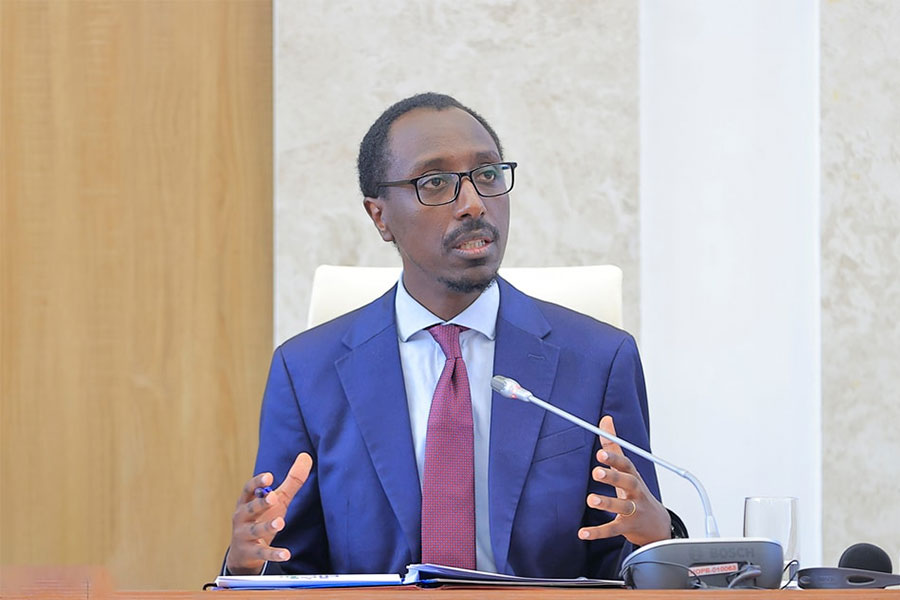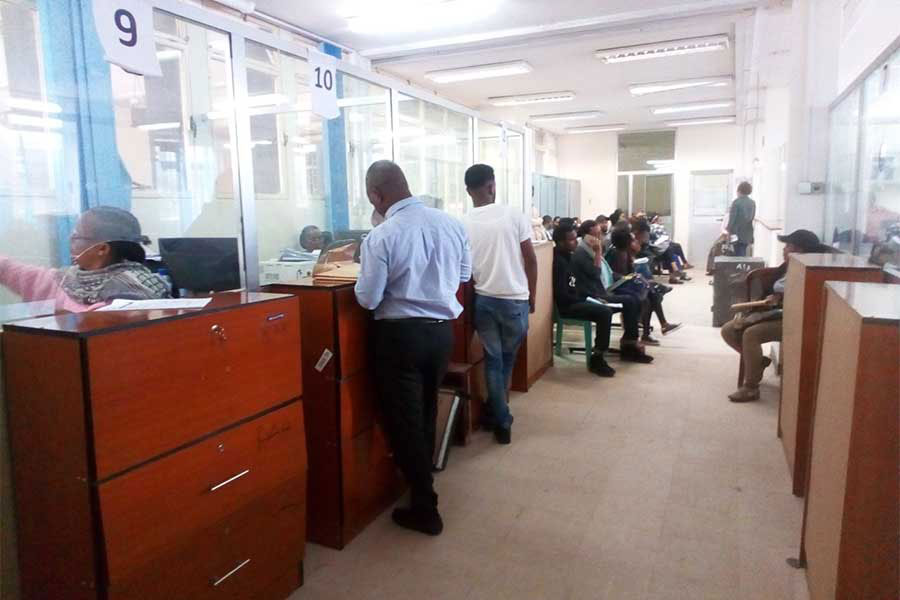
Editorial | May 16,2020
Jun 15 , 2019
By Asseged G. Medhin
Insurance professionals can bring risk management considerations to mega projects, and projects should incorporate community buy-ins in their planning and implementation, argues Asseged G. Medhin, the deputy CEO of operations at the National Insurance Company of Ethiopia (NICE). He can be reached at kolass799728@yahoo.com.
Whenever people think about development, they usually think in terms of money or economic values. Social, psychological, and spiritual developments do not come to their minds as parameters.
However, it is essential that the evaluating parameters for mega development projects should be expanded beyond just economic values. When discussing the valuations of important mega projects, we should also consider non-economic parameters. Non-economic parameters include the cultural, psychological and spiritual values of a society. The right path to development is one where a nation has a national vision, and all economic planning comes out of that vision.
Value attribution in the economic system should also consider non-monetary values. The question is, do all projects synchronise every value that ultimately maximises national assets? In the 21st Century, any business, including government business, will only prosper if it syncs all values in the processes. Without this, everything will ultimately fail because, in the end, development is about people. And people will support or reject projects based on their value systems.
We don’t undertake massive construction projects only for the short term. If we want projects to succeed in the long run, we have to make sure there is buy-in from the community they are supposed to serve. We should not design projects with only economic gains in mind at the expense of all other values. Missing human values is losing everything. The government should balance psychological, social and spiritual values each time a decision at the highest level is considered.
For instance, all humans need to feel respected and valued. That psychological value may be violated if they think they are arbitrarily and improperly displaced, even if their displacement might bring substantial economic benefits.
On the other hand, if they are made to feel part of the planning process for the development project and are shown respect and appreciation, then people have an enormous capacity to sacrifice for the common good. Therefore, it is crucial to consider these human factors when doing feasibility studies and cost-benefit analysis of projects.
The other case to consider is instances when projects are woven together with corrupted networks. Any project, profit-oriented or not that is tainted by a corrupted system goes against the spiritual values of the society.
It has been proven time and again that projects that are not embraced by communities that they are supposed to serve will not be successful in the long run. And it is no surprise that communities will reject projects that go against their norms and values.
Some mega projects which were started with great fanfare, lavish ceremonies and warm handshakes of respective ministers have failed because their initial feasibility studies excluded social, psychological and spiritual values. As a result, they could not get citizens to buy in. They were unable to motivate them to view the projects as their own and protect it at every stage of development.
A project from the people, to the people and by the people will never fail. It will be prosperous.
Therefore, the most significant and most crucial risk mitigating strategy for mega projects is securing the communities buy-in at the outset. And the best way to do that is by taking more than monetary factors in project feasibility studies into account.
However, having done that, we also should have a national risk management strategy and insure projects against all kinds of risks, including political risk as well as force majors. As an insurance expert, my view is that so far, the risk mitigating strategies followed are traditional and inadequate.
Risk management, as a term and profession is not new and has passed through three different State ideologies in this country. But the fundamentals are the same. It is either avoidance of risk or transferring it to insurers.
Insurance professionals should be included in the feasibility studies of projects so they could analyse the extent of the risks involved and the mitigating factors. They also should make sure not to leave any project without adequate coverage.
Ethiopia is located within the Rift Valley. Lots of mega projects with massive investments are underway in these areas. Were insurers called to advice project planners about risk management in these regions before approval? Insurance professionals have many things to share about risk management, location analysis, value determination, and estimating maximum probable losses. Insurers also should be there on behalf of the community to maintain those values, which in turn pays more than risk premium.
When the state awards mega projects without rigorous professional debates and analytical discussions before approval, the failure begins right at the drafting table.
PUBLISHED ON
Jun 15,2019 [ VOL
20 , NO
998]


Editorial | May 16,2020

Fineline |

Verbatim | Jun 07,2025

Fortune News | Dec 10,2022

Radar | Dec 26,2020

View From Arada | Dec 17,2022

Fortune News | Nov 05,2022

Sunday with Eden | Oct 08,2022

Editorial | Dec 31,2022

Fortune News | Apr 16,2022

Photo Gallery | 177224 Views | May 06,2019

Photo Gallery | 167432 Views | Apr 26,2019

Photo Gallery | 158060 Views | Oct 06,2021

My Opinion | 136970 Views | Aug 14,2021
Commentaries | Oct 25,2025

Dec 22 , 2024 . By TIZITA SHEWAFERAW
Charged with transforming colossal state-owned enterprises into modern and competitiv...

Aug 18 , 2024 . By AKSAH ITALO
Although predictable Yonas Zerihun's job in the ride-hailing service is not immune to...

Jul 28 , 2024 . By TIZITA SHEWAFERAW
Unhabitual, perhaps too many, Samuel Gebreyohannes, 38, used to occasionally enjoy a couple of beers at breakfast. However, he recently swit...

Jul 13 , 2024 . By AKSAH ITALO
Investors who rely on tractors, trucks, and field vehicles for commuting, transporting commodities, and f...

Oct 25 , 2025
The regulatory machinery is on overdrive. In only two years, no fewer than 35 new pro...

Oct 18 , 2025
The political establishment, notably the ruling party and its top brass, has become p...

Oct 11 , 2025
Ladislas Farago, a roving Associated Press (AP) correspondent, arrived in Ethiopia in...

Oct 4 , 2025
Eyob Tekalegn (PhD) had been in the Governor's chair for only weeks when, on Septembe...

Oct 25 , 2025 . By YITBAREK GETACHEW
Officials of the Addis Abeba's Education Bureau have embarked on an ambitious experim...

Oct 26 , 2025 . By YITBAREK GETACHEW
The federal government is making a landmark shift in its investment incentive regime...

Oct 26 , 2025 . By NAHOM AYELE
The National Bank of Ethiopia (NBE) is preparing to issue a directive that will funda...

Oct 26 , 2025 . By SURAFEL MULUGETA
A community of booksellers shadowing the Ethiopian National Theatre has been jolted b...